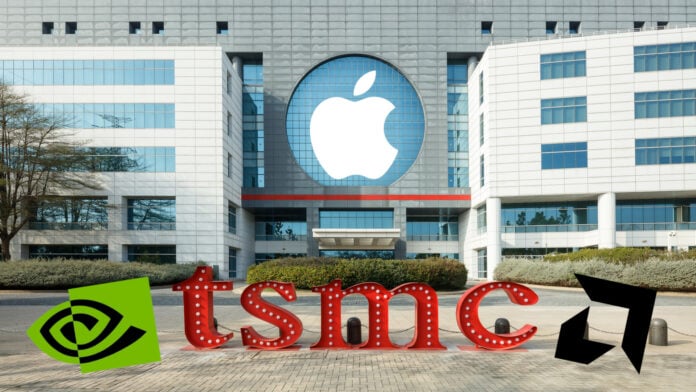Tech companies with custom silicon can’t get enough of TSMC, with AMD and Nvidia proving no exception. Currently, GeForce and Radeon graphics cards alike are fabricated using TSMC’s production nodes, with future generations likely earmarked for more advanced processes. This is, of course, providing Apple’s alleged plans don’t come to fruition and spoil everyone else’s hopes and dreams.
Nvidia exclusively uses TSMC’s 4N (5nm) fabrication process for its GeForce RTX 40 series, from the best graphics cards in the lineup right down to the cheapest pixel pusher. AMD, meanwhile, uses a variety of processes for its Radeon RX 7000 series, with TSMC N5 (5nm) and N6 (6nm) nodes pumping out GPUs and memory cache dies alike. However, Apple is also a large customer for TSMC, with the company buying out the foundry’s entire 3nm capacity for its A17 Pro, M3, and M4 chips. Now, it appears that Apple is looking to get exclusive access once again.
According to reports by 9to5Mac, Apple COO Jeff Williams recently visited TSMC in a bid to secure exclusive use of the company’s 2nm process for upcoming neural processing units (NPUs) for AI workloads. If true, and should Apple succeed in its ploy, both AMD and Nvidia would potentially need to seek an alternative manufacturer for their products.
Naturally, this would hit Nvidia the hardest, given its current single-node strategy. Conditions wouldn’t be fantastic for AMD, but it’s already in the habit of adopting several nodes to serve its needs and would likely continue to do so. Both companies could seek refuge from Samsung, or possibly Intel, albeit with less advanced foundries at their disposal. Nvidia already has a history of this, as it made GeForce RTX 30 series using Samsung’s 8LPU process.
Thankfully, given how advanced TSMC’s 2nm process is, we’re unlikely to see any impact in the short term for upcoming GeForce RTX 50 series or RDNA 4 graphics cards. It’s unclear whether this alleged exclusivity deal would affect a prospective GeForce RTX 60 series or RDNA 5, but it’s highly likely. More concerning for AMD and Nvidia, though, is the potential for Apple to catch up with its own GPUs thanks to the more advanced node. The iPhone manufacturer is clearly pushing more and more into the gaming sphere with its latest smartphones and MetalFX upscaler and shows no signs of slowing down.
Image credit: Taiwan Semiconductor Manufacturing Co., Ltd.
